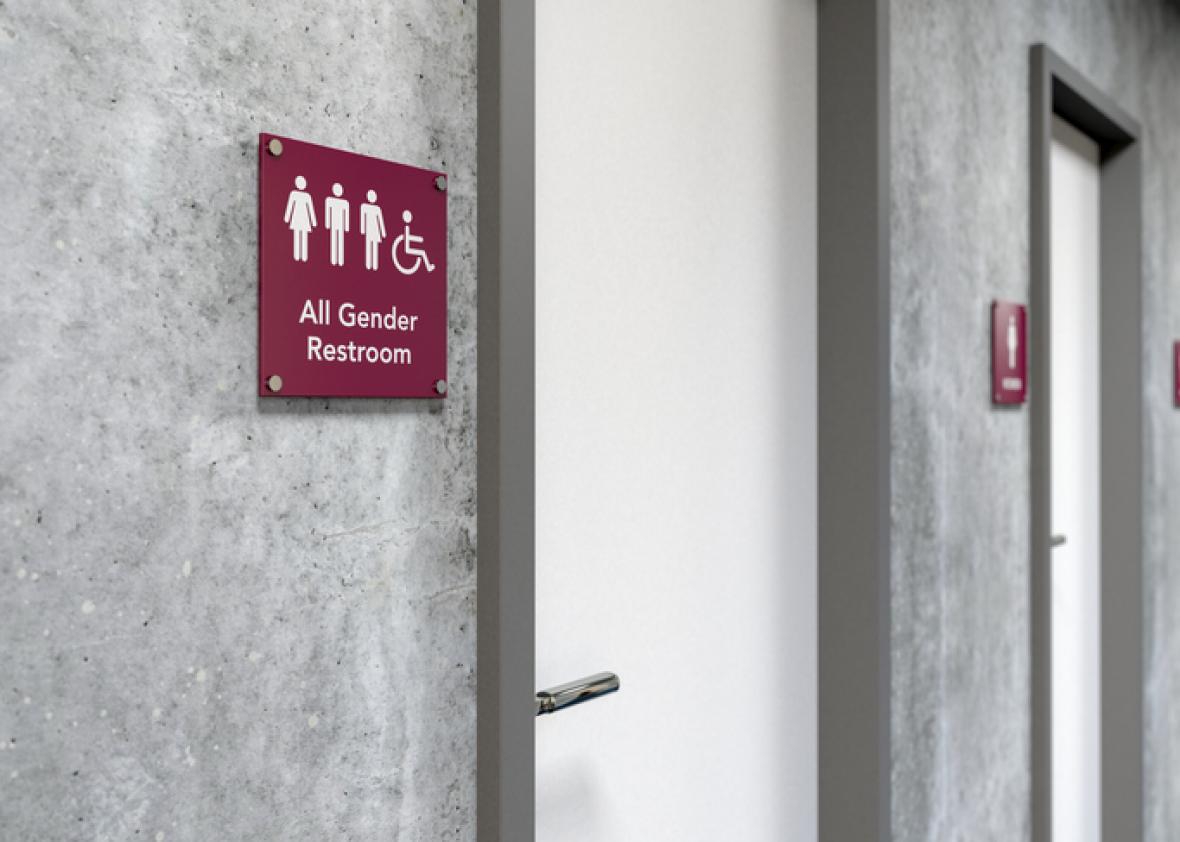Since last week, Republicans in the Texas state Senate have been sprinting through a marathon-length list of Gov. Greg Abbott’s legislative priorities, suspending rules and cutting short deliberations to rush a handful of right-leaning bills to the House during a 30-day special session. Democrats say GOP leaders are suppressing the democratic process by depriving legislators and citizens of time to read the bills and advocate for or against them.
One such bill is a regulation on transgender people using single-gender public bathrooms that don’t match the sex on their birth certificates or state-issued IDs. The Texas Senate passed a similar bill earlier this year, but its momentum petered out in the House. Polls have found that only about one-third of Texans support the so-called bathroom bill, and more than half oppose it. Still, for more than a year, Lt. Gov. Dan Patrick has made keeping trans people out of bathrooms one of his pet issues. The Senate passed the bill after midnight on Wednesday morning, sending it to the House, where it will likely stall again, as Republican Speaker Joe Straus opposes it.
So do plenty of other people who know a thing or two about public safety, which Republicans have held up as the ostensible goal of the bathroom regulation. While the Texas Senate debated the bill, the police chiefs of Houston, San Antonio, and Austin held a joint press conference at the state Capitol to publicly oppose the proposed legislation. “It may be great political theater, but it is bad on public safety,” Houston Police Chief Art Acevedo said. Other representatives from the police forces of Corpus Christi, El Paso, and elsewhere said the legislation would take time away from investigating violent crimes and put it into enforcing nearly unenforceable rules, endangering community safety. Chief William McManus of San Antonio, a city that passed an ordinance in 2013 protecting trans people’s rights to use whatever bathrooms match their gender identities, said he had members of his department search the succeeding years’ records for any evidence of assaults in public bathrooms by men pretending to be trans women. They found nothing. “I am a believer that if you propose a bill to address a criminal justice concern, it is important to determine if there is an actual problem you are trying to solve,” McManus said.
This is an important point that exposes the hate and discrimination that underlies transgender bathroom restrictions. Republican legislators don’t want to protect their constituents who aren’t trans—they want to keep trans people out of the public sphere altogether. There is no way to station a police officer or security guard as an ID-checking bouncer at every public restroom that would be affected by the legislation. The proposed bill wouldn’t even penalize trans people who used bathrooms that didn’t match their IDs. Instead, it would nullify laws like San Antonio’s that prohibit bathroom discrimination and impose financial penalties on schools and government entities that don’t police bathroom use based on birth certificates.
In other words, there is no good way to enforce this kind of law, and there is no public interest in passing it. It’s not a public safety measure. It is a message to trans people that they are undeserving of basic dignity and comfortable participation in public life. It is a go-ahead to cis people to harass anyone in a restroom who doesn’t look like their idea of a gender-normative woman or man. And it is tantamount to emotional abuse for trans kids, who would arguably be most affected by the legislation because they spend all day in schools, which are among the primary targets of the bill. When the police chiefs of some of the state’s biggest cities are begging legislators to give their transphobia a rest, it’s well past time for the governor and lieutenant governor to rethink their priorities.
